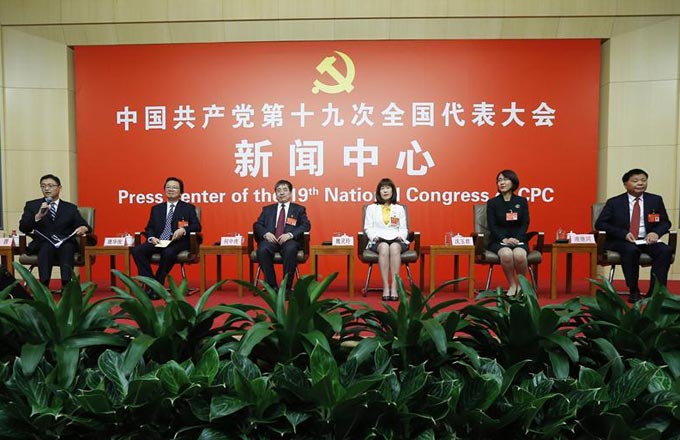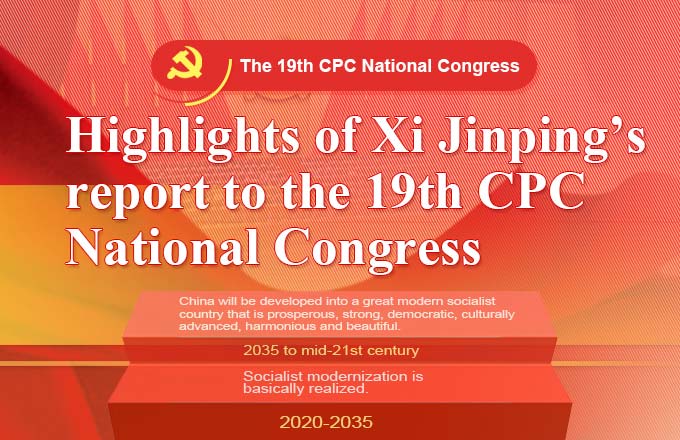China's potential seen from high altitude
To get the big picture, one must rise high above the details - to the 30,000-foot level. (That's about 9,000 meters for those who prefer the more sensible metric system.)
The 19th CPC National Congress provides an opportunity to get a 30,000-foot view of China's progress and assess its future.
But while you can see a great deal from 30,000 feet, it's not quite enough. I prefer going higher - to 60,000 feet - which enters the realm of philosophy and political theory. From here you can see the curvature of the Earth and begin to grasp the trajectory of mankind.
Political systems can be likened to automobile engines: Many work, but each has its own unique design limitations. It's the job of government to identify those limitations and make changes to achieve greater horsepower. Bringing prosperity, health, security and intellectual freedom to the masses is, after all, the whole point.

President Xi Jinping has reiterated this principle often, perhaps most vividly through the concept of the Chinese Dream, which suggests that the engine of political theory - if it's to have any value - must produce concrete benefits.
In the United States, we share that view. Government should be organized by the people "on such principles and ... in such form as to them shall seem most likely to effect their safety and happiness", our Declaration of Independence says. This is exactly what the Chinese people did when they started afresh in 1949, and again with opening-up in 1978. There have been trials along the way, to be sure. The system wasn't perfect, nor was every leader. But China built an engine, and improved it.
The task continues. From my perch at 60,000 feet I envy the Party's five-year conferences. No such conventions have ever been held in the US, even though the US Constitution provides for them. The resulting weakness is clear from 60,000 feet. A polarized US Congress chronically falls short of delivering rational, long-term solutions for the good of the country.
China's system tries to close that gap, and its progress is notable. In the past five years, adjustments have been made on many fronts - the environment, science, technology, international outreach and poverty relief, to name a few.
But the job is unfinished. Corruption, for instance, has been dealt a hammer blow. Yet stubborn human nature remains, as seen in the abundant news reports about disciplinary action against Party officials.
"If men were angels, no government would be necessary," wrote James Madison, a key US founder. But since they are not angels, he advocated a structural solution: the rule of law. Not emotional appeals, not good intentions, not religion, not abstract ideas - just clear law. China has made strides in this area, but the legal system remains a work in progress.
There are other puzzles. For example, everybody nowadays touts innovation. But innovation is a form of rebellion against past practice. Innovators are rule-breakers by nature. They challenge the status quo. They reject orthodoxy to create upheavals large and small. There's no such thing as a conforming innovator.
At the same time, Chinese culture is influenced by Confucian concepts of harmony and stability, making for an awkward coexistence. Innovation is inherently disruptive of the old order, while conformity puts the brakes on innovation.
This gets into deep philosophical water, but it seems clear from 60,000 feet that, in the modern era, a healthy collision of ideas stands the best chance of producing rational, positive change.
Finding that balance is China's challenge. Are there any built-in limitations in its political, economic or social engines? If so, can those be adjusted? These are good questions for delegates to the Party's 19th National Congress.
If the right changes are made, a massive wave of creativity, cultural influence and economic success will follow such as the world has seldom seen.
At least that's the view from 60,000 feet.


























